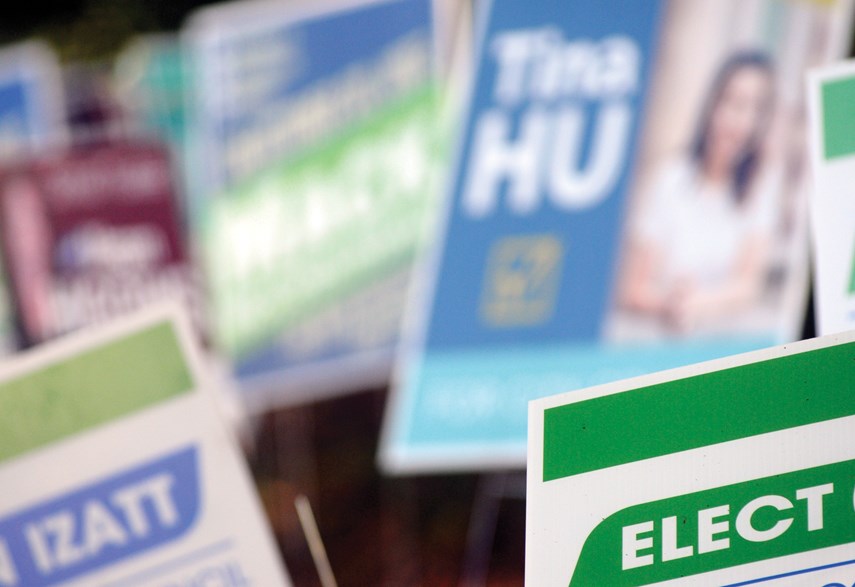North Shore residents may be party poopers, according to a new poll.
In the Oct. 15 municipal elections, voter turnout in the City of North Vancouver and District of North Vancouver was a paltry 22.6 per cent. In West Vancouver, it was higher at 35.2 per cent but still nothing to brag about.
In an interview, UBC political science prof Gerry Baier suggested the introduction of political parties to municipal elections as a way to boost voter engagement.
It would be easier from a voter’s perspective to parse the platforms of just a few parties, rather than upwards of 20 individual candidates, he said. It would also be easier for like-minded candidates to group together and spread the word about their policy positions and values.
But North Shore News readers aren’t keen party politics at the local level. North Shore News polled 1,215 readers and asked the question: Should the North Shore have political parties at the municipal level?
The poll ran from Oct. 18 to 31. Of the 1,215 votes, we can determine that 491 are from within the community. The full results are as follows:
In 2018, the Building Bridges Electors Society fielded four candidates for council in the District of North Vancouver, one of whom was elected, and one for the North Vancouver school board, who was also elected.
The new councils are due to be sworn in on Nov. 7.
Results are based on an online study of adult North Shore News readers that are located in North Vancouver and West Vancouver. The margin of error - which measures sample variability - is +/- 2.8 per cent, 19 times out of 20.
North Shore News uses a variety of techniques to capture data, detect and prevent fraudulent votes, detect and prevent robots, and filter out non-local and duplicate votes.



